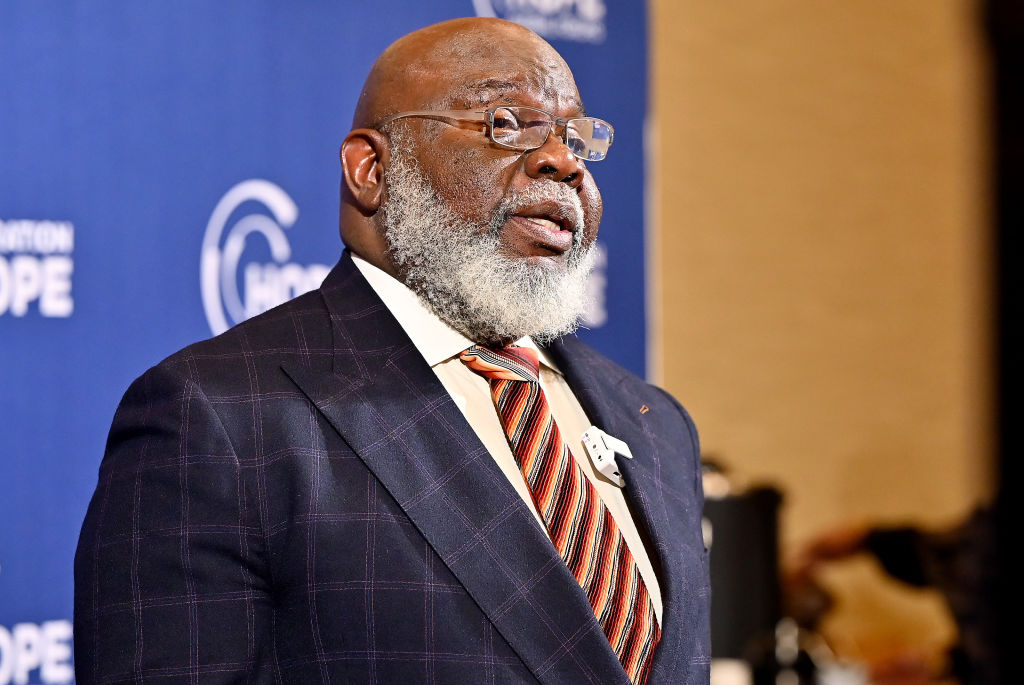By Christian Carter

Followers of Megachurch pastor and entreprenuer Bishop T.D. Jakes are finding out what really led the pastor to have an emergency health crisis while preaching in church just a few months ago. In an exclusive interview on TODAY Jakes shared that the life-threatening medical emergency he suffered last year was a heart attack.
“I didn’t really realize what was happening to me onstage until I got to the hospital in an ambulance and fussing that it happened onstage, by the way, because I didn’t want it to happen, and the doctor leaned over my ear and said, ‘You had a massive heart attack,’” Jakes told Craig Melvin on TODAY on March 26.
Jakes, 67, was delivering an inspirational message on Nov. 23, 2024, at The Potter’s House, a nondenominational Christian megachurch in Dallas where he is the pastor, when he experienced a medical emergency.
Video of the moment shows Jakes pausing onstage and shaking after lowering the microphone, according to NBC affiliate KXAS. Church officials then rush the stage to help him before the video cuts out. “
The reason I didn’t realize it was because I had none of the symptoms that they say,” Jakes told Craig about the heart attack. “No numbness, no sharp pain, no anything. I just kind of drifted off to sleep. I didn’t know what it was, but I almost died.
“(The doctor) said five minutes later, I’d have been dead on arrival,” he continued. “The right side of my heart had completely stopped getting blood at all.”
When the incident first happened, Jakes was surrounded by staff, family and security that helped quickly usher him to the hospital. But what are you supposed to do if you or someone you love suffers a heart attack in front of you?
According to Mayo Clinic, here’s what you should do:
Call 911 or your local emergency number:
Don’t ignore the symptoms of a heart attack. If you can’t get an ambulance or emergency vehicle to come to you, have someone drive you to the nearest hospital. Drive yourself only if you have no other option.
Take aspirin, if recommended:
Aspirin helps prevent blood clotting. Taking aspirin during a heart attack may reduce heart damage. Don’t take an aspirin unless a healthcare professional says to do so. Don’t delay calling 911 to take an aspirin. Call for emergency help first.
Take nitroglycerin, if prescribed:
If you think you’re having a heart attack and you have a prescription for this medicine, take it as directed while waiting for emergency medical help.
Start CPR if the person doesn’t have a pulse or isn’t breathing:
If you’re untrained in CPR, do hands-only CPR. That means push hard and fast on the person’s chest. Do this about 100 to 120 times a minute. If you’re trained in CPR and confident in your ability, start with 30 chest compressions before giving two rescue breaths.
Use an automated external defibrillator (AED) if one is available and the person is unconscious:
The device delivers shocks to reset the heart rhythm. AEDs come with step-by-step voice instructions for their use. They’re programmed to allow a shock only when appropriate.

